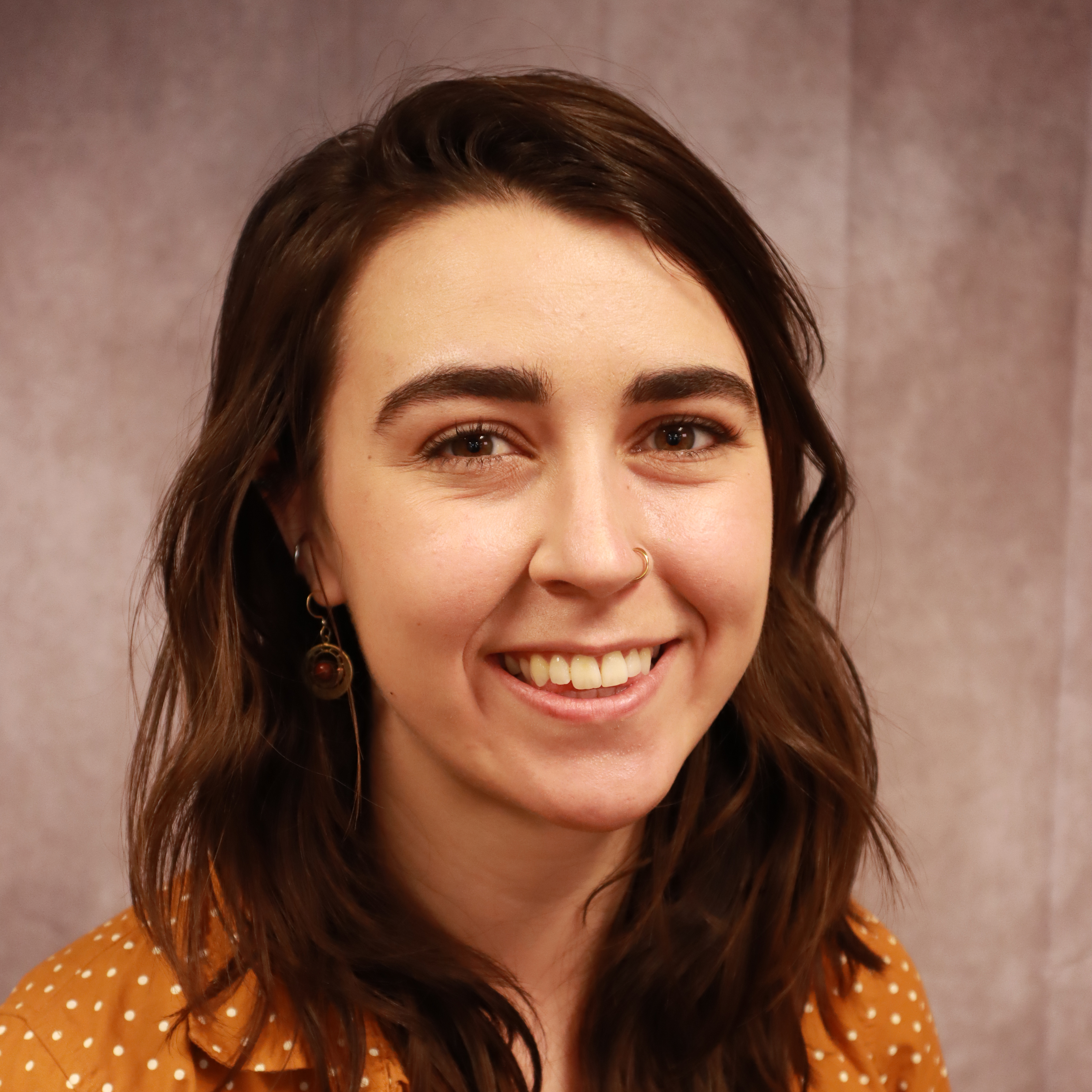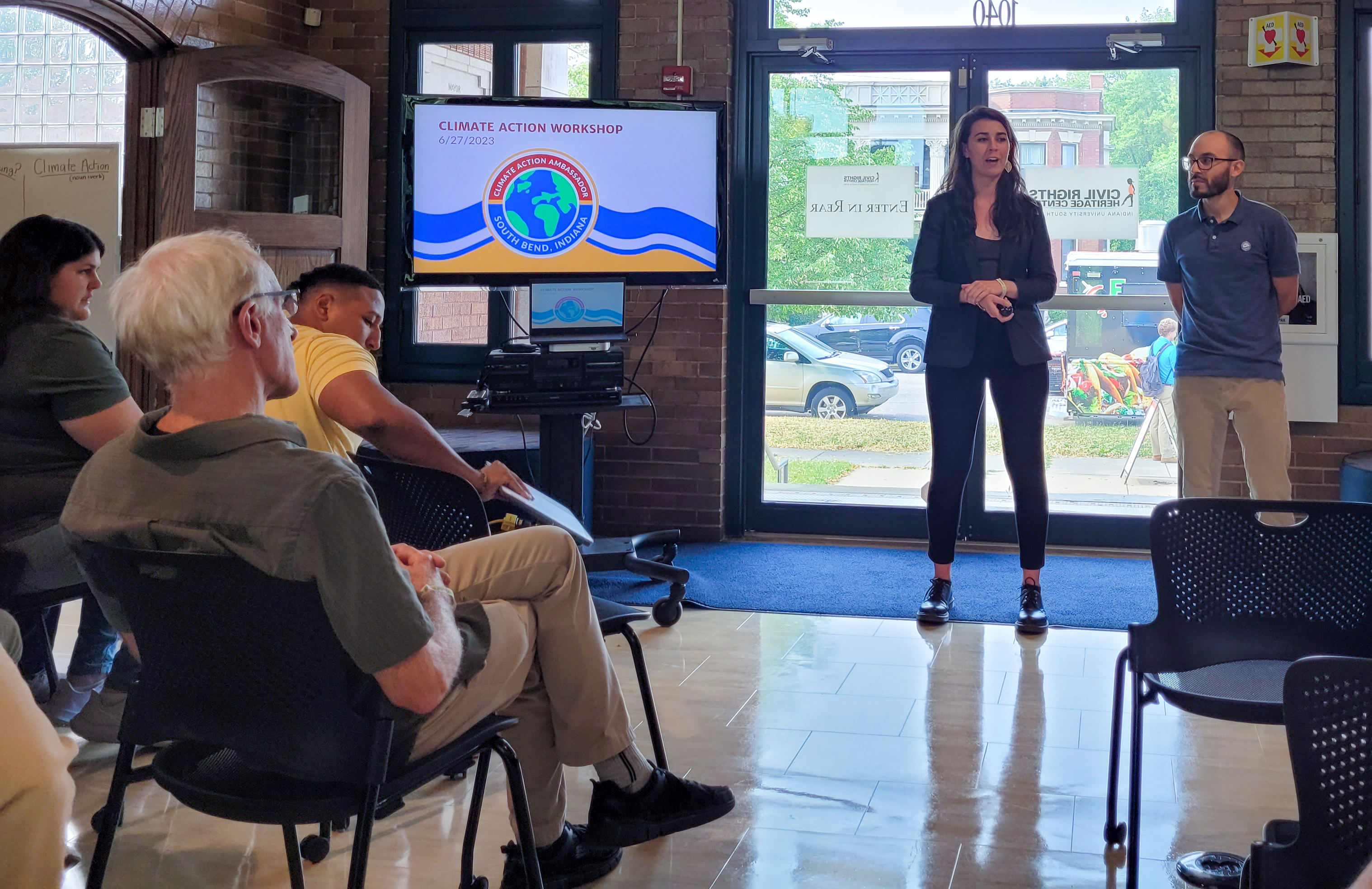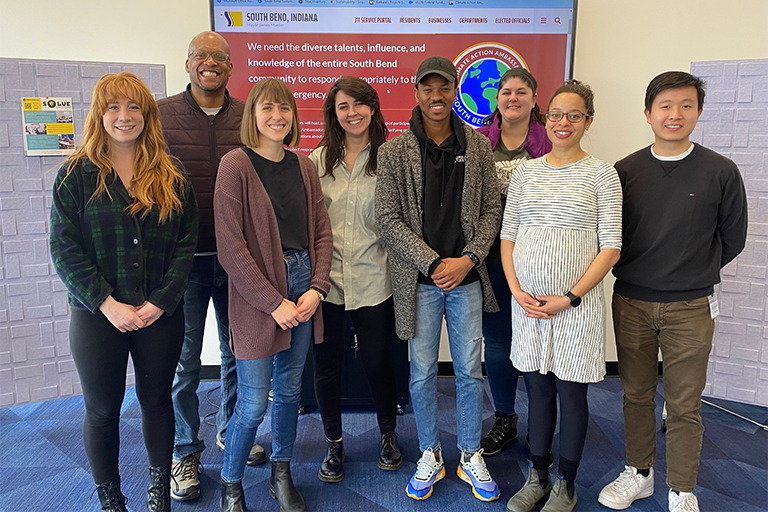This Q&A series highlights McKinney Climate Fellows alumni and their professional journeys within Indiana and beyond. The McKinney Climate Fellows program, administered by Indiana University’s Environmental Resilience Institute and Integrated Program in the Environment, connects IU undergraduate and graduate students interested in climate, sustainability, and community resilience with career experiences.
As a McKinney Climate Fellow with the City of South Bend in 2022, Barbara Dale helped the city apply for a grant to increase community engagement around the city’s update to its 2019 climate action plan. The successful grant turned into the Climate Action Ambassadors program, which provides funding for 15 “ambassadors” to gather input from local residents related to the city’s plan.
In 2023, Dale joined South Bend’s Office of Sustainability full time after graduating with a dual master’s degree from the IU O’Neill School of Public and Environmental Affairs. She continues to manage the program her grant funded and works to elevate sustainability and social justice principles in her day-to-day interactions.
The following interview has been lightly edited for length and clarity.
What projects did you work on during your time as a McKinney Climate Fellow?
South Bend was on a three-year update cycle for our climate action plan (CAP), and the first update to our 2019 plan was coming up. But there had been the pandemic and some staff turnover, so we hadn't really gotten a chance to implement much of that 2019 CAP, so we had to apply for an extension.
Then we realized that the most important use of my time was using a lot of my tech communications skills like website programming, graphic design, and storytelling. I was asked to help with communications, letting people know that we have a climate action plan and that the Office of Sustainability exists. That was my focus. I did a lot of website redesign and content development.
Your first job was a nonprofit in Philadelphia focused on housing and social services. Why did you decide to return to your home state of Indiana to work in sustainability?
When I was working my first job in Philadelphia, I really loved working on bringing together sustainability, environmental justice, and housing affordability. These things are often looked at as not really the same. But looking at them on a structural societal level is very interesting and fun for me, so I knew that that kind of work was what I wanted to do.
I also always felt like I parachuted in from the Midwest as this white girl going into low-income neighborhoods I wasn’t from. I think it was good work, but there were already a lot of people there who were more able to speak to their personal experience growing up there. So, I realized I would like to do that same kind of work in Indiana, where I grew up and where I feel like there's a lot of room for connecting the dots between environmental and social justice. I brought that mentality to my graduate program.
How have your responsibilities changed in the transition into your permanent role with the City of South Bend?
Being a McKinney Climate Fellow is a three- to-six-month position. You're on a short time frame, which is a difficult thing when you're working in climate change. It's nice now that I'm working and living here, and I can really get to know the community on a personal level and over a longer time frame.
Right now, we're in an interesting phase because we're doing a lot of different plans at once: the neighborhood plans, the 20-year comprehensive plan update, and our CAP update. One of the programs that I run is the Climate Action Ambassadors program. This was a grant that I applied for as a McKinney Climate Fellow and that was one of the reasons why I got the job.
Since there’s only two people in our Office of Sustainability, we cannot do all the work that needs to be done. Our 15 climate action ambassadors helped us carry out these climate action survey sessions, which were hour-long community meetings led by local leaders we designed to be Socratic in nature. It's teaching as it's asking questions about our climate action plan as it currently stands. We’re really trying to do our due diligence of letting people know what's going on in our community and get input as to how the community wants to shape that plan.





